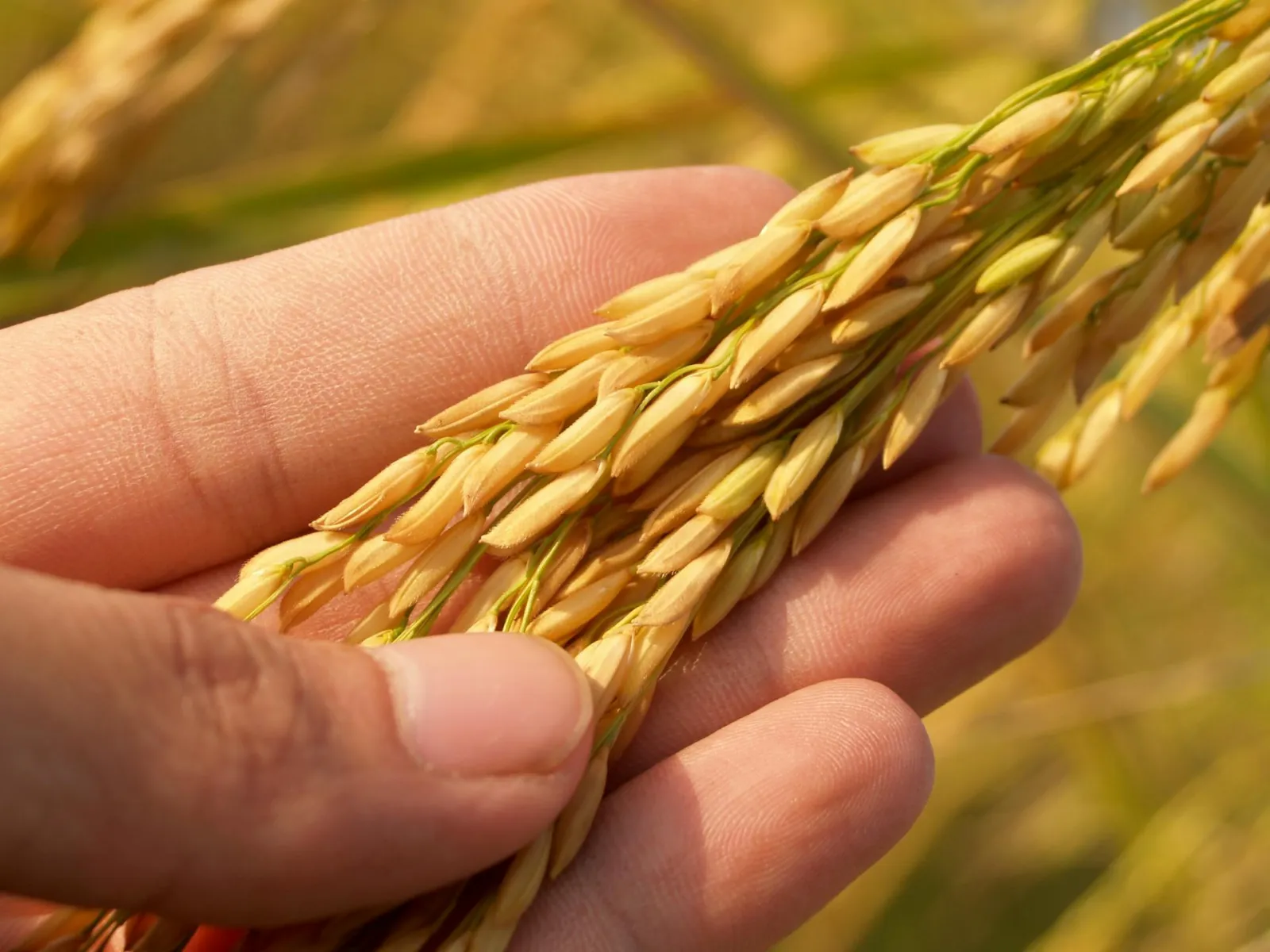Researchers identified a gene strain in rice that can maintain grain quality and yield in high temperatures, potentially a crucial development for producers in regions where climate change is causing extreme heat.
Abstract
Rising global temperatures threaten crop grain quality and yield; however, how temperature regulates grain quality and how to achieve synergistic thermotolerance for both quality and yield remain unknown. Here, we identified a rice major locus, QT12, which negatively controls grain-quality field thermotolerance by disrupting endosperm storage substance homeostasis through over-activating unfolded protein response (UPR). Natural variations in QT12 and an NF-Y complex form a natural gene on-off system to modulate QT12 expression and thermotolerance. High temperatures weaken NF-YB9/NF-YC10 interactions with NF-YA8, releasing QT12 suppression and triggering quality deterioration. Low QT12 expression confers superior quality and increases elite rice yield up to 1.31–1.93 times under large-scale high-temperature trials. Two trait regulatory haplotypes (TRHs) from co-selected variations of the four genetically unlinked genes in NF-Ys-QT12 were identified for subspecies thermotolerance differentiation. Our work provides mechanistic insights into rice field thermotolerance and offers a proof-of-concept breeding strategy to break stress-growth and yield-quality trade-offs.
Reference
A natural gene on-off system confers field thermotolerance for grain quality and yield in rice
Li, Wei et al (2025) Cell, Volume 0, Issue 0




Comments (0)